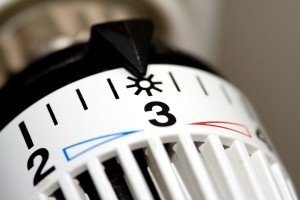Benefits of Gas Heating
Staying comfortable through the chilly days of winter no longer has to mean paying high energy bills for the privilege. Given that New Zealanders attest around 23% of their entire household energy use to heating and cooling, it makes sense to choose a system that delivers the right amount of warmth to your home and allows you to avoid wasting energy and receiving huge energy bills.
Throughout New Zealand there are around 350,000 home that are connected to gas. Of these, around 40% of homes have twin-pack cylinders and 60% use reticulated gas. On top of these, there are hundreds of thousands of homes and small businesses that use LPG cabinet heaters and LPG for space and water heating.
As more and more people gain appreciation for better lifestyles, lower utility costs, energy efficiency and understanding of the devastating effects of carbon footprints, the number of gas connections are rising.
Whether you are considering gas heating or have made the change already, there is comfort in the knowledge that you’ve made the right choice and the reasons why. Traditionally, homes have been heated in a variety of ways – coal, oil, wood, electricity, gas and solar. Let’s see why gas heating is a wise investment in your home and comfort.
- Natural Gas has lower carbon emissions than coal heating. It has less environmental impact than other fuel options for heating and the emissions from gas heating are 45% less than other conventional fuels and 30% less than oil.
- It can be stored and transported through pipelines, small storage units, cylinders or tankers on land and sea. It is easier to transport than other fuel options and easier to preserve.
- Most areas now have gas lines laid for residential use. If you do not have the ability to have gas connected in your area – not to fear! – gas can be provided for your family’s use in cylinders which you replace when they get low in gas.
- When Natural Gas burns it does not have any smell, ash or smoke. This makes for a clean burn and very little environment impact. There is no heavy work involved in cleaning after gas is used, unlike a traditional fireplace.
- Natural Gas is relatively abundant compared to other fossil fuels. It is currently estimated that New Zealand’s gas supply can service another 30 solid years however there are many new gas fields that are being discovered and opened up so the supply is not likely to stop any time soon.
- If there is a leak, Natural Gas and LPG are lighter than air and tends to dissipate when there is a leakage. There are no unnerving situations like what can happen with Propane, which being heavier than air, collects into explosive pockets.
- Natural Gas and LPG are cheaper than electricity. Gas is quicker when used for cooking and heating water and majority of gas appliances are cheaper than electric appliances.
- Gas appliances do not create electric fields which are unhealthy near your homes.
- Gas heat emits 23% less carbon dioxide than oil heat.
- Gas heat has averaged 30% to 50% less expensive than oil heat every year since 2002.
- You typically can recoup conversion costs within five years, depending on gas prices and usage.
- Producing and delivering electricity is 2/3 less efficient. Only 30% of the energy used to generate electricity actually reaches your home. This means 70% of that energy is lost along the way. Part of it is lost while burning energy to create electricity. The rest is lost in the transmission and distribution of the electricity to your home.
- 90% of the natural gas that enters the pipeline reaches you, the consumer. Only a mere 10% of the energy is lost in the process.
- If all you have is a gas fuelled continuous flow hot water system, then you’ll notice that you will never run out of hot water. Ever!
- If you have gas space heating then you will benefit from powerful, energy efficient heat that is very cost-effective, and that heats large spaces quickly. You can keep the whole house warm, which is a major bonus for families.
- Natural gas appliances are faster and use less energy than electric appliances.
- Natural gas dryers use less energy and can dry clothes faster than electric dryers.
- Natural gas hot water heaters heat water twice as fast as electric water heaters.
- Choosing natural gas appliances is an easy way to reduce your impact on the environment without sacrificing comfort or style
- Most natural gas appliances work even when the electricity is out.
- Since the natural gas system is underground, outages are rare.
- Most natural gas appliances cost less money to operate than electric appliances.




